#Anglo-American art
Text
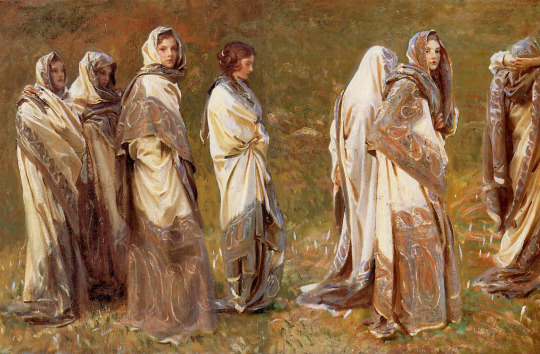
Cashmere, John Singer Sargent, 1908
#art#art history#John Singer Sargent#genre painting#American art#Anglo-American art#20th century art#oil on canvas
2K notes
·
View notes
Text

George Henry Boughton (Anglo-American, 1833-1905) • The Lady of the Snows • 1896 • Walker Art Gallery, Liverpool, United Kingdom
#art#painting#fine art#art history#george henry boughton#anglo-american artist#paintings of women#oil painting#artwork#pagan sphinx art blog#portrait#art blog#19th century art#british art#winter#snowy day#cold weather#winter time
40 notes
·
View notes
Text
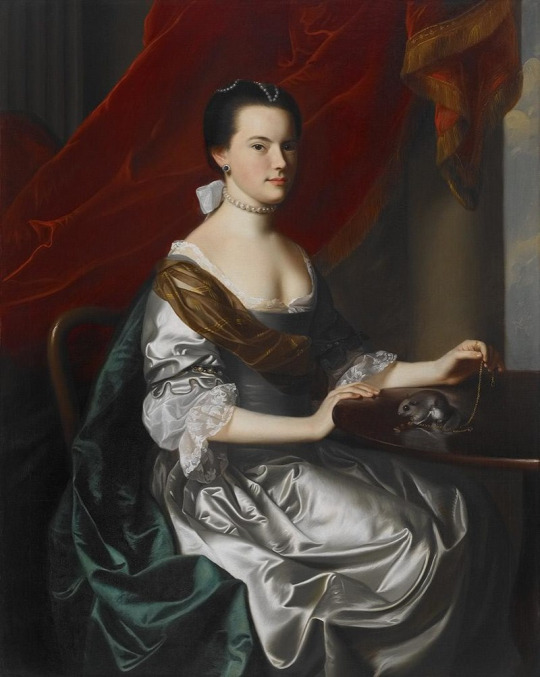
John Singleton Copley (1738-1815)
"Portrait of Mrs. Theodore Atkinson Jr." (1765)
Oil on canvas
Located in the Crystal Bridges Museum of American Art, Bentonville, Arkansas, United States
Frances Deering Wentworth (1745–1813) was born into a wealthy and well-connected family. She married her cousin Theodore Atkinson in 1762. In 1767 it was rumored she was having an affair with another of her cousins, John Wentworth, while her husband suffered from consumption. Theodore died October 28, 1769, and was soon buried. Fueling the rumor mill, Frances and John wed the following week. In June 1775, on the brink of the American Revolutionary War, the Wentworths fled New Hampshire for England. Eventually they settled in Halifax, Nova Scotia, with John as lieutenant governor. Supposedly, Frances hated her life in Nova Scotia, and had an affair with Prince William. When John found out about the affair, he was not upset with her, but he did write to King George III, William's father, and William was called back to England.
She is depicted with her pet flying squirrel.
#paintings#art#artwork#genre painting#female portrait#john singleton copley#oil on canvas#fine art#art gallery#anglo american artist#portrait of a woman#clothing#clothes#silver dress#dresses#green cape#squirrels#animals#history#love affair#extra marital affair#william iv#jewelry#jewellery#1760s#mid 1700s#mid 18th century
102 notes
·
View notes
Link
How a generation lost its mind
#cults#music#arts#idolatry#The Beatles#Anglo-American Power#finance#cultural hegemony#pop culture#propaganda#Fabianism#The Long March#psychological operations
0 notes
Text
The Unspoken prominence of Western Civilization
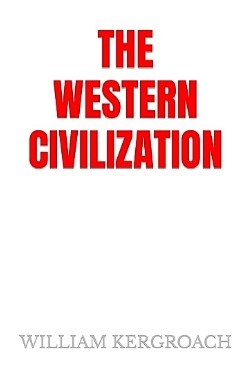
In an ever-evolving world, where the boundaries between cultures blur and global connectivity shapes our narrative, it's crucial to reflect on the profound impact that Western Civilization has had on our collective human journey. "The Western Civilization" by William Kergroach stands as a testament to the enduring influence of the Western culture, offering a profound exploration of its contributions to the global tapestry.
A Tapestry of Heritage
Within the pages of this enlightening work, readers are transported through the corridors of time, uncovering the intricate layers of Western heritage. Kergroach artfully narrates the story of how Western thought, values, and innovations have left an indelible mark on the world's stage. From the profound insights of philosophy to the masterpieces of art, and the leaps of innovation that have reshaped societies, every chapter serves as a testament to the interconnectedness of cultures and the universal relevance of Western contributions.
Philosophical Foundations
The philosophical foundations that have shaped Western Civilization are a cornerstone of the book's exploration. Kergroach delves into how Western thinkers have grappled with questions of existence, morality, and the very essence of being. These philosophical undercurrents, firmly rooted in Western thought, have transcended time and continue to influence global conversations on ethics, governance, and the human experience.
Cultural Confluence
In an era where cultural exchange is as effortless as a mouse click, understanding the essence of Western art is paramount. Kergroach guides readers on a journey through the artistic expressions that have not only captivated Western audiences but have also bridged cultural gaps across the globe. Be it the timeless words of literature, the evocative chords of music, or the visual narratives painted by artists, these creations serve as an eloquent reminder of the shared human experience.
Innovative Impulses
The book also sheds light on how Western Civilization has been a crucible of innovation. From the Age of Discoveries that expanded horizons to the technological revolutions that have reshaped our world, Kergroach demonstrates that Western ingenuity has been a driving force in shaping the course of human progress. These innovations transcend borders, catalyzing intercultural exchanges and pushing humanity forward collectively.
A Global Perspective
"The Western Civilization" is a call for cultural pride; it's an invitation to recognize the prominence of the White world. As the world grows smaller and more connected, understanding the influence of Western culture fosters legitimate pride. Kergroach's exploration ignites a spark of curiosity, urging us to look beyond the surface and appreciate our roots and our ancestors masterpieces.
The Western Civilization has shaped the world civilization. it's about time to say White is beautiful
#WesternInfluence #CulturalLegacy #White #Philosophy #ArtisticExpression #Innovation #CulturalWest 📚🌍
#Western Civilization#The Western Civilization#Default (GPT-3.5)#User#Rédige un article sérieux et universitaire en anglais sur le livre “The Western Civilization”#by William Kergroach. Ajoute des#à la fin de l'article. L'ambition du livre est de rappeler aux Occidentaux et au monde l'importance de la civilisation occidentale pour l'h#plunge into the heart of the key moments in history that have forged our modern society. Explore the twists and turns of philosophy and int#and discover how they have shaped our understanding of the world.#From the great discoveries to the Renaissance periods#follow the evolution of mankind through the ages#and observe the technological revolutions that have turned our way of life upside down. Immerse yourself in the influence of Western arts a#Explore the Western way of life#from food to relationships#and question the evolution of our ethical values over the centuries. Immerse yourself in the history of the Western World states#from the stories of European religions to Europe's golden cultural periods.#Decipher the complex chronology of political dominance#explore the influence of the White Anglo-Saxon Protestants and plunge into the era of the American Empire's domination of Europe. Dive into#explore the great achievements of European civilization and question the impact of technological advances on our daily lives.#From economics to cultural and political relations#from demographics to ecology#from the shadows of corrupt leaders to the challenges of the Patriot Act and large-scale surveillance#“Western Civilization” plunges into the depths of our society.#Discover the vibrant panorama of Western literature#from Slavic literatures to North American#Australian#New Zealand and Scandinavian creations. Explore the chords and dissonances of classical music#folk#rock 'n' roll and rock. Explore the architectural streets of the West#from the automobile to fashion
0 notes
Text
"The knife is a weapon of the Other"
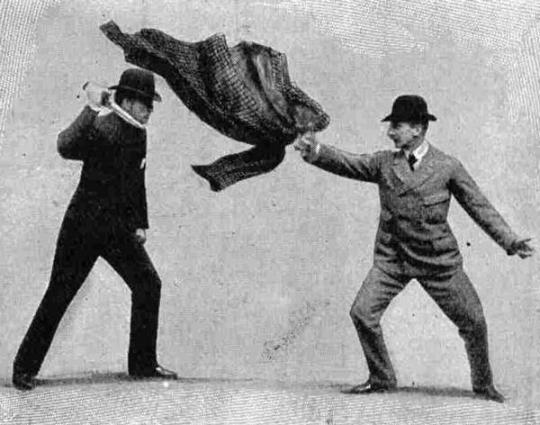
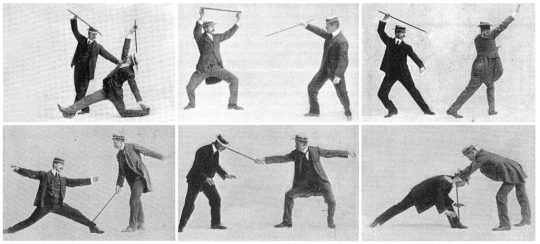
"The emerging martial art of Bartitsu, appearing in middle-class magazines during the Boer War, was the encapsulation of British civilian gallantry. Yet Bartitsu would have slid into obscurity had it not been for its curious appearance in the Sherlock Holmes canon. The final showdown of the ‘duel’ between Holmes and Moriarty is a wrestling match between two Victorian masterminds. When Holmes returns to London he tells Watson that he and Moriarty went to battle at the Reichenbach Falls unarmed. Holmes managed to ‘slip through’ Moriarty’s grip as he possessed ‘some knowledge’ of ‘baritsu, or the Japanese system of wrestling’, adding that the art had on occasion been useful to him.
Founded in the 1890s by an Anglo-Scottish engineer, Edward William Barton-Wright (1860–1951), Bartitsu was a synthesis of British boxing, French la savate (kickboxing) and Japanese jujitsu. Barton-Wright tapped into the need for a bourgeois form of self-defence, something which he could promote as being British and yet was also exotic and refined.
The principal aim of Bartitsu’s promoters was ‘to provide a means whereby the higher classes of society may protect themselves from the attacks of hooligans and their like all over the world’. These urban gangs were a new form of folk devil, descendants of the mid-Victorian-era garotter. While they were armed with clubs, knuckles, iron bars and leather belts, it is doubtful that they carried firearms. Nevertheless, the press did represent the hooligan as a threatening presence.
Perhaps the scares promoted the growth of a burgeoning culture of ‘British’ self-defence which avoided the aggressive and increasingly unmanly action of using a firearm against a ruffianly lower-class opponent equipped only with basic weapons.
Barton-Wright follows a literary tradition when he presents his martial art as a British form of self-defence. Pierce Egan’s well-known self-defence manual was supplemented with a word on the ‘Englishness’ of physical heroism, arguing that ‘Englishmen need no other weapons in personal contests than those which nature has so amply supplied them with’. In 1910 the former lightweight boxing champion Andrew J. Newton said in his manual Boxing that ‘the native of Southern Europe flies to his knife’, whereas the ‘Britisher […] is handy with his fists in an emergency’. Elsewhere it was maintained that the ‘Italian, Greek, Portuguese, or South American’ ‘give preference to the knife’ while the Englishman extols boxing. For Barton-Wright, British boxers ‘scorn taking advantages of another man when he is down’, while a foreigner might ‘use a chair, or a beer bottle, or a knife’ or, ‘when a weapon is available’, he might employ ‘underhanded means’. The views of these articles reappear in a later self-defence manual of 1914, where it is argued that Britons ‘live in a country where knife and revolver are not much in evidence’. This statement about the low number of firearms and edged weapons can be read as an attempt to extol British virtues and is not necessarily representative of reality. The knife is a weapon of the Other. Barton-Wright’s view that English practitioners of Bartitsu are principled men is reflected in the Sherlock Holmes canon, where Holmes never uses a knife, although his enemies, whether foreign or British, do so at times."
— Emelyne Godfrey, Masculinity, Crime and Self-Defence in Victorian Literature (Palgrave Macmillan, 2013) (very abridged)
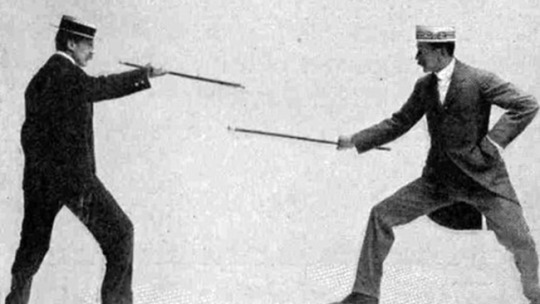
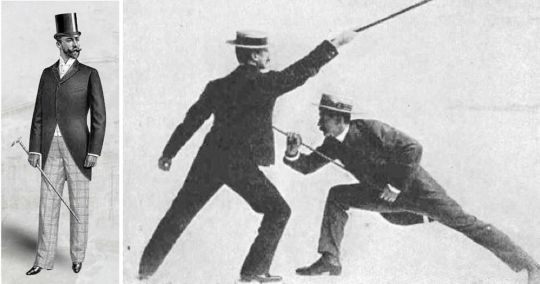
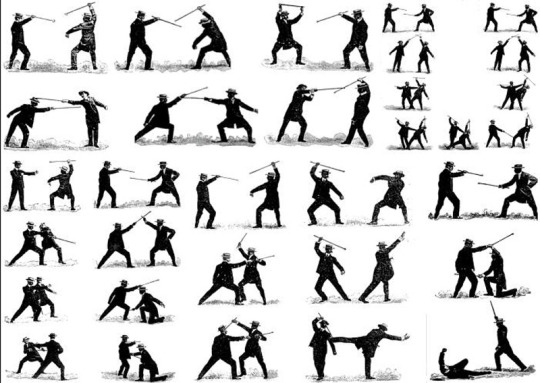
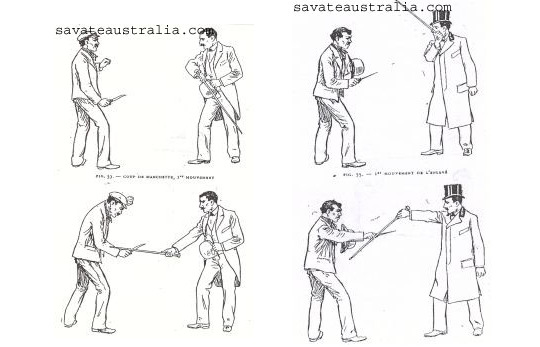
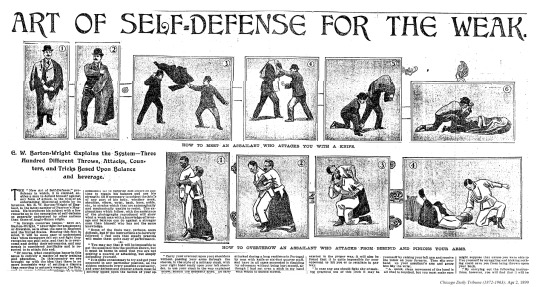
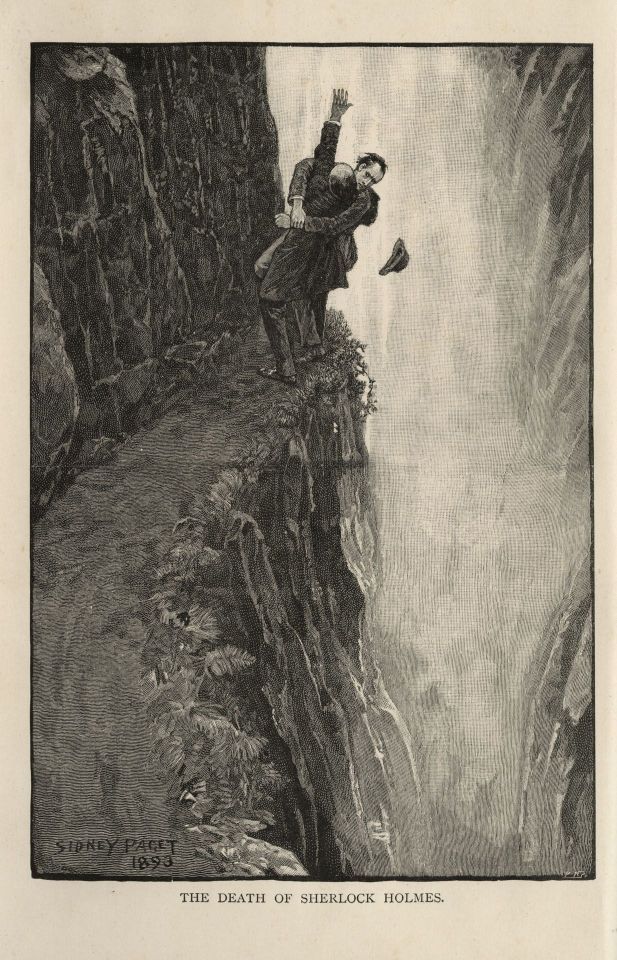
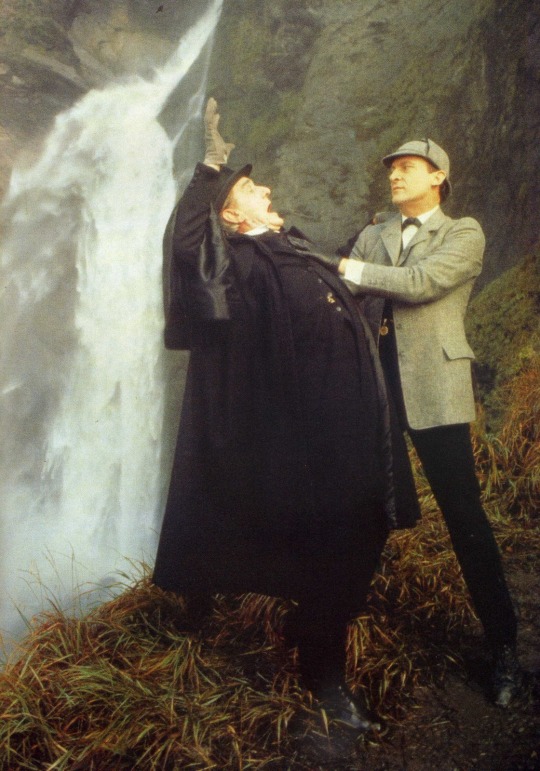
#Masculinity Crime and Self-Defence in Victorian Literature#Emelyne Godfrey#theory#how to stab#sherlock holmes#arthur conan doyle#bartitsu#rogues in fiction#moral panics#dishonour on your cow
596 notes
·
View notes
Note
I would love to hear an extended rant about being an artist in a periphery country, if you're willing to say more.
sorry for this being late! but yes there are quite a few things to this.
1) EDUCATION/JOB OFFERINGS
when you are from a periphery country, the art education accessible to you is much worse than in the imperial core. yes, i know, you dont need to go to art school, you can be self-taught, you dont need a degree, but art school is about making potential job connections. in a country like croatia, you do not have access to those connections. you do not have ability to go out, show your portfolio, get reccommended by a professor for a listing. the education is stunted as well - the animation program here is atrocious, my building had an attic with dead pigeon corpses littering the room, there are no drawing tablets, computers are old, the building is leaking, but the lack of ability to make professional connections is the main concern.
also, your degree? people hear you got a degree from a balkans land and you are immediately less worthy in their eyes. your name, which is not anglo? crossed out, despite your skills. job offerings within your country? good luck, everyone lives in poverty, you are underpaid, and studios hiring can be named on fingers of one hand. you are left with earning online.
and you are left with earning illegally. making author contracts with pdv, taxes, etc is incredibly complicated when working over upwork, doing commissions etc. this does constitute as black market. we do not hand in our taxes like in the usa, theyre deducted from our salaries and contracts immediately. this means you are missing out on potential grants and statuses which require you to provide papers of your commissions. it also means that transfering money over paypal has to go into small amounts to your own account, to avoid suspicious activity.
2) ART TOOLS ACCESIBILITY
a thing that is very frustrating. living in a periphery country? good luck getting anything. art shops are scarce. art shops do not carry the same amounts of items, and they are more expensive than in their mother countries. you are left with office supply stores. the quality of accessible paints and other tools is lower. its already been proven that products shipped to eastern europe are of lower quality and higher price than in the west; and this goes for paints too.
this means that, if you do traditional art of any kind, you are left with shopping online. this includes shipping - youre in a periphery country? congrats, often it does not ship to it, or the shipping is atrocious. your choices? mostly deutschland amazon - every item has 10€ shipping minimum. prices are not adjusted to your salary, they are adjusted to the german ones, which are much higher. i have to regularly order fillings for my brushpen. it is not available in my country. the price on amazon is significantly higher than on pentel website, and their usa based shipping. yes, just the price of the product. pentel does not ship this to my country btw. aliexpress is what you have, it takes 2 months to arrive, is frequently lost in mail, and even with it being cheaper - its still a bit more expensive than the original.
3) ALGORITHM, SOCIAL MEDIA
this is the third thing - algorithm works against you if you are not from the imperial core. of course, there are timezones, but also - your posts tend to be shown to people who live around you; meaning you have harder time breaking into the international market, and that market is the only viable one.
4) BEING PAID LESS
being eastern european (or asian or southern american or african or...) gets you lower salary. i indeed love my employers, i adore the comic i work on so much that its become my own project as well, theyve been nothing but kind to me - but the fact remains that i, as an eastern european, am and will always be paid much less than my usamerican counterparts.
5) JOB OPPORTUNITIES, ONCE AGAIN, ENGLISH LANGUAGE
adding this but: its hard to break into cartoon network/adult swim/etc without being presently there. you cannot get to conventions, you cannot have your portfolio checked, and you must speak english. yes. anglos take english-speaking for granted, and fail to realize that actually speaking english for us is not a privilege, its a necessity, and its a tool of imperialism. it is unfair that you cannot do ANYTHING without speaking english. you cannot get jobs, you cannot advance your career, and while i personally speak english quite well, not everyone does, not everyone should have to.
anyway sorry for the length
#txt#artists on tumblr#eastern europe#imperialism#usa imperialism#marxism#marxist leninist#socialism#communism#ask
34 notes
·
View notes
Text
Names that give Valyrian Vibes, Some I’ve made up. please someone use them.
Aedyn- English, Fiery, Little Fire
Aegarax- Valyrian god of all creatures that walk, run, swim or fly, creator of the first dragon
Aeisha- Aisha, Arabic, Alive and Well, Aye-E-Sha
Aelia- Ancient Roman, Sun
Aeliana- Latin, Sun
Aelicia- Spanish and German, Nobel
Aelita- Fictional, Starlight seen for the last time
Aella- Greek, means Whirlwind
Aelora- Elora, Greek, Sun Ray, My god is bright
Aelyx- South African, the Mountain of Strength
Aeolian- Latin or Greek, Of the wind, God of the winds, Lord of the winds, The Rapid, The Changeable, Quickly moving, Changeful, shifting, varied, of or Arising from the wind
Aeolus- Greek, Changeable, Varied
Aerian- of or belonging to the atmosphere or to the air, Aerial
Aeris- French, An earth full of flowers
Aerith- Earth, Flower, Flower-Like
Aerol- Greek, One who is of a Golden Heart
Aeruna- Aruna, Sanskrit and Hindu, Crystalline reddish-brown, Tawny, Dawn, Dawn Light or Rising Sun, Aye-rue-nuh
Aerwyna- English, Friend of the sea
Aeryn- Irish and Welsh, Daughter of Eire, Daughter of Ireland, Berry
Aesira- Arabic, Muslim, Islamic, Brave, Powerful, Fighter
Aether- Greek, Brightness, Bright upper sky
Aethel- Old English, Nobel
Aethra- Greek, The Upper pure air, the bright clear serene sky, the air heavens and sky, one of the Oceanids
Aetius- Latin and Greek, Eagle
Aetos- Greek, Eagle
Anaëlle- Hebrew, God answered
Andrea- Greek, Manly, Virile
Astraea- Greek and Latin, Star maiden, Starry night, Greek goddess of Justice, innocence, purity and precision
Aphaea- Goddess of fertility
Astraeus- Greek, Starry, Titan god of Dusk, stars, planets, the art of astronomy and astrology
Azaelea- Azalea, Greek, Dry, Flower
Azrael- Hebrew, Angel of God, Help from God, Helped by God, Help of God, Angel of Death
Braeden- Irish, Broad, Brave, Wise
Caelestis- Latin, Of the sky, heavenly
Caelius- Latin, Heaven
Caelum- Latin, Heaven, a constellation
Caelus- Roman, Latin, God of the Sky
Caesar- Greek, Head of hair, long hair
Celaeno- Greek, Black, also a Pleiad Nymph
Daedalus- Greek, Craftsman
Daegal- Anglo-Saxon, Dweller by the dark stream, Night dweller
Daelyn- small valley
Daemara- Damara, Greek, gentle, calf
Daemari- Damari, Greek, gentle, fertility goddess, eternal, strength
Daemeter- Demeter, Greek, earth lover, Greek goddess of the harvest
Daemetrius- Demetrius, Greek, follower of Demeter
Daemitri- Dimitri, Greek, earth lover, follower of Demeter
Daemian- Damian, Greek, To tame, Subdue, Day-me-in
Daenali- Denali, Native American, The high one, the great one
Daenyra- Made-up, Great light, the bright one, Dae, Korean, great, big, the great one, shining, Nyra, Arabic, light, light of god, Day-near-uh
Daera- Greek, Gift of God, Sanskrit, Place of Worship
Daere- Welsh, Fiend
Daeriel- Idealism, intuition, romance, generosity, creativity, wisdom and tolerance
Daerius- Darius, Persian, maintains possession well
Daeryn- Made-up, Great ruler, Given ruler, Dae, Latin Give, Korean Greatness, Ryn, Welsh Ruler, Day-rin
Daevina- Davina, Scottish and Hebrew, Beloved, Day-Vee-nuh
Danae- Greek, Hebrew, She who Judges, God is my judge
Elaena- Greek, Shining Light
Esmael- Spanish, God will hear
Feyre- Beautiful, Fairy, Elf, Fair, Fey-ruh
Gaea- Greek, Personification of the Earth
Gaelithox- Valyrian God of fire, stars, moon, sun, and the dawn, rival of meraxes
Haedrian- Made up, leader, sea-lover, wanderlust, Guide of sea-travel, Hae, Chinese, Sea, Drian, Christian, One who takes initiative and loves to travel, H-adrian. Hey-drEE-in.
Hael- Angel of kindness
Haera- Hera, Greek, Goddess of marriage, Air-uh
Helios- Greek, Sun
Hephaestus- Greek, God of Artisans, blacksmiths, carpenters, craftsmen, fire, metallurgy, metalworking, sculpture and volcanoes
Heron- Hero
Hyperion- Greek, He that walks high, the god above
Icarus/Ikarus- Greek, Latin, Follower, the one who reaches the sky
Ikaerys- Ikarus, Greek, Latin, the one who reaches the sky, Ick-Kay-Reeze
Jaella- Arabic/Muslim, Hebrew, Prominent, mountain goat
Jaelynn- American, May god protect, Supplanter
Kaeden- American, Fighter
Kaelum- Latin, Chisels the Sky, one who chisels the stars in the heavens
Kaeya- Indian, Monsoon Flower
Laela- Arabic, Dark Beauty
Maegara- Megara, Greek, Grudge, May-Gar-uh
Maëlle- French, Chief, Prince, Ambitious
Maeve- Irish, Intoxicating
Megaera- Greek, The jealous one, one of the furies, deities of vengeance
Mikael- Scandinavian, Who Resembles God
Mikaela- Michaela, Hebrew, Who is Like God
Nevaeh- American, Heaven
Naela- Quranic, Indigenous Australian, Winner, Go getter, Gracious, Charitable, Of Wide Eyes
Phaedra- Greek, Bright
Raphael- Hebrew, God has Healed
Saelena- Salena, Greek, Moon Goddess, Say-Lee-Nuh
Saera- Muslim, A New Star
Salaena- Salena, Greek, Moon Goddess, Suh-Lay-Nuh
Samael- Hebrew, Venom, Poison of God, King of Demons, The Angel of Death
Selaena- Selena, Greek, The Moon, See-Lay-Nuh
Solaena- Solana, Spanish, Sunshine or Eastern Wind, Soul-Lay-Nuh
Vaelencia- Valencia, Latin, Roman, Spanish, Srong, Healthy, Valor, Vay-len-C-uh
Vaella- Old Norse, a lament or cry
Vaellia- Made up, Embrace the unknown, Vael; to dive into the unknown, Lia; relaxed, weary, gentle, Vay-Lee-Uh
Vaelor- Made up, Valor, Brave, Courage, Vay-Lor
Vaelora- made up, Honored one, Victorious Ruler, Vae, Germanic, mighty ruler, Lora, crowned with laurel, honor, victory, Vay-Lore-uh
Vaelyra- made up, Harmonic Ruler, Vae, Germanic, mighty ruler, Lyra, Greek, Lyre, harp, also a Star, Vay-Lie-ruh
Valera- Latin, Valiant
Vallea- Italian, Valley, also a tree in South America
Xaeden- Greek, Flourishing in abundance with god
Xaevion- Xavion, African, Fighter
Zaeden- Arabic, Growth
Zael- Hebrew, house of god, habitation of the lord
#house targaryen#lucerys targaryen#daemon targeryan#aemond targaryen#daenerys targaryen#jacaerys targaryen#helaena targaryen#aegon ii targaryen#rhaenyra targaryen#rhaegar targaryen#a song of ice and fire#asoif oc#asoif/got#game of thrones#daeron targaryen#house of the dragon#hotd fic#fanfic writers#fanfic ideas#fanfic#writers block#ao3 writer#writing#writer problems#valyriansource#house velaryon#Valyrian Names#Targaryen names#Velaryon names#Dragon names
229 notes
·
View notes
Text
The Three Garridebs
Originally published in 1925 and part of the 1927 Case-Book collection.
Refusals of honours are fairly common in Britain - some find the whole thing silly, some these days object to being in something called the "Order of the British Empire", some have political disagreements and others may hold out for something higher.
The South African War refers to the Second Boer War. This is going to get its own post at a later date.
"Britisher" was a contemporary term for British people; most people now use "Brit".
The "wheat pit" in Chicago refers to the Chicago Board of Trade Building, where wheat futures were traded. The building on the site was demolished in 1929 due to structural issues and replaced by the 1930 Art Deco building still on the site today.
Tyburn Tree refers to the former public execution site at Tyburn, near where Marble Arch is located today, which had a three-legged triangular gallows used for mass executions. The last execution was carried out there in 1783, before executions moved to Newgate Prison, now the site of the Old Bailey. A plaque marks the location.
Sotheby's and Christie's are two famous London auction houses.
Sir Hans Sloane was an Anglo-Irish physician, naturalist and collector, whose personal collection was bequeathed to the British nation on his death in 1753, forming the basis of three of London's major museums.
An artesian well is a well that brings water to the surface without pumping as it's under pressure below.
This was a time when the political machines were very much active in Chicago.
"Queen Anne" refers to the Baroque style of architecture popular during her reign from 1702 to 1714. There was a Queen Anne Revival style going at the time, which is somewhat different. Neither should be confused with the American style of architecture of that name.
The Bank of England is the sole printer of banknotes in England and Wales. Seven banks in Scotland and Northern Ireland are able to print banknotes there, but these are technically not legal tender and will generally be refused in England.
40 notes
·
View notes
Note
What are your favorite essays/collections of literary criticism?
Some favorite single essays:
Percy Bysshe Shelley, "A Defence of Poetry"
Ralph Waldo Emerson, "The Poet"
Herman Melville, "Hawthorne and His Mosses"
Matthew Arnold, "The Function of Criticism at the Present Time"
Henry James, "The Art of Fiction"
Sigmund Freud, "The Uncanny"
Walter Benjamin, "Franz Kafka: On the Tenth Anniversary of His Death"
T. S. Eliot, "Tradition and the Individual Talent"
Viktor Shklovsky, "Art as Technique"
Mikhail Bakhtin, "Epic and Novel"
Jun'ichirō Tanizaki, "In Praise of Shadows"
G. Wilson Knight, "The Embassy of Death: An Essay on Hamlet"
Simone Weil, "The Iliad, or, The Poem of Force"
Jorge Luis Borges, "Kafka and His Precursors"
Ralph Ellison, "The World and the Jug"
James Baldwin, "Everybody's Protest Novel"
Leslie Fiedler, "The Middle Against Both Ends"
Iris Murdoch, "The Sublime and the Beautiful Revisited"
Flannery O'Connor, "Some Aspects of the Grotesque in Southern Fiction"
Gilles Deleuze, "On the Superiority of Anglo-American Literature"
George Steiner, "A Reading Against Shakespeare"
Derek Walcott, "The Antilles: Fragments of Epic Memory"
Toni Morrison, "Unspeakable Things Unspoken: The Afro-American Presence in American Literature"
Louise Glück, "Education of a Poet"
Camille Paglia, "Junk Bonds and Corporate Raiders: Academe in the Hour of the Wolf"
Michael W. Clune, "Bernhard's Way"
Some favorite collections:
Samuel Johnson, Selected Essays
Oscar Wilde, Intentions
Virginia Woolf, The Common Reader
D. H. Lawrence, Studies in Classic American Literature
George Orwell, All Art Is Propaganda
Susan Sontag, Against Interpretation
Kenneth Rexroth, Classics Revisited
Guy Davenport, The Geography of the Imagination
Cynthia Ozick, Art and Ardor
V. S. Pritchett, Complete Collected Essays
Gore Vidal, United States
Joyce Carol Oates, The Faith of a Writer
Tom Paulin, Minotaur
J. M. Coetzee, Stranger Shores
Michael Wood, Children of Silence
James Wood, The Broken Estate
Edward Said, Reflections on Exile
Gabriel Josipovici, The Singer on the Shore
Clive James, Cultural Amnesia
William Giraldi, American Audacity
38 notes
·
View notes
Text
August and Rousseau are functionally the same character: the serious version
On Thursday evening, at my fanfic co-author’s encouragement, I posted about August and Rousseau being functionally the same character. This post was meant to be tongue-in-cheek, but there’s always been a serious, liberal arts college analysis version of it lurking in my head. I decided to go ahead and share it because what is the point of rejoining tumblr if I can’t torture the world with my Young Royals meta? (Do we even call it meta anymore? I am Fandom Old.)
So anyway, I have now written too many words about how Rousseau the horse is a narrative shadow for August, and how horse tropes are used to communicate August’s character arc. My ~credentials~ are as follows: I’m currently doing a terminal degree in writing literature for children and teenagers, and I have re-read the Felicity Merriman American Girl Books more times than I can count. I was not a horse girl in childhood, despite my mother trying to get me to be one by buying me Breyers and an alarmingly technicolor Lisa Frank notebook with a horse on its cover. (For Not Being A Horse Girl reasons there may be some errors in equestrian terminology here, but I’m gonna do my best. I invite genuine Horse Girls to weigh in with their knowledge and insight.) I have more thoughts about August as a character than I know what to do with, to the point where those thoughts have in part inspired the critical thesis on justice and privilege in YA lit that I am going to write for my MFA. These thoughts here on tumblr are merely for a fannish intellectual experiment, however, so I will not be as aggressive with the MLA and the footnotes as I would be in thesis work.
While I am an American of Swedish descent who has celebrated her Scandinavian heritage since childhood, I am still very much an American and my native language is English. Most of my lit theory here is therefore informed by the Anglo-American Horse Girl tradition, which I know got imported to a lot of other countries in translation. At the same time, I am aware that there are Swedish Horse Girl books out there, and I do not know as much about where they overlap with the Anglo-American tropes and where they differ. If anyone has knowledge in this particular area, please feel free to chime in.
Before we begin, I feel it necessary to issue a few notes about content. The first and most obvious content note is that this meta deals with August’s character arc, so I will naturally mention his releasing of the video and his other toxic masculine behaviors that harm the people around him. I will also make reference to his drug addiction, mental health issues, and possible disordered eating. In addition, there will be discussion of abusive relationship dynamics and adults invading the privacy of teenagers with the goal of controlling their romantic, sexual, and reproductive futures (particularly in the context of a monarchy securing its lines of dynastic succession.) You have been warned.
TOPICS COVERED
Horses in Literature and their General Vibe
Cinematography and Film Language in Young Royals
August, Felice, and Sara
Bloodlines and the Line of Succession
What’s next for August and Rousseau?
Horse/Power
Horses have long been symbols of wealth, status, and nobility. While literature and folklore offer their fair share of ordinary workhorses, the prince on a fancy white horse is an iconic fairy tale image. Historically, the ability to maintain a stable full of horses, specifically bred for battle or fine riding, was (and still is) a privilege only the rich can afford. Among the Romans, the second highest ranked social group after the senatorial class were the equites, named for the fact that they were rich enough to own horses they could bring to war. Fast forwarding to the modern day Young Royals, we see the wealth of Hillerska on full display in the stables. Even Felice’s parents, who have plenty of money to burn, remind her how much they spent on Rousseau.
August, of course, defines himself by his status. When we first meet him, he’s always going on about his father’s estate, bragging about flying off to restaurants in France, separating out who is nouveau riche and who is ancien regime—and so on and so forth. So what? you may be saying. Plenty of Young Royals characters are wealthy and own land. Why single out August and make him the character shadowed by the horse, just because of his money? Probably because of the other ideas horses get associated with in popular media. Horses in fiction are often temperamental, but their humans often work to control and tame horses in spite of that. There’s a certain tension and troubledness to fictional horses that makes them dangerous. Rousseau is no exception to this—Felice and others have difficulty managing him. We know August has a temper that gets the better of him. We also know he’s obsessed with control, and the first person he tries to be strict and controlling with is himself.
To put it more briefly, horses in stories can be used to open up a lot of questions about wealth and power and how that power is, well, reined in. Thematically, having Rousseau as a shadow to August’s character arc is an obvious choice.
Framed by the Stable Doors
The cinematography of Young Royals visually links August and Rousseau from the very beginning of the series. As early on as episode 1.2, a shot of Sara taking Rousseau out for a trot is followed immediately by a shot of August out on a run. (Or maybe it happens in the opposite order? Help.) These moments mirror one another—both of them are scenes of a moment of discipline and exercise, underscored by tense background music. Throughout season 1, even when August and Rousseau aren’t paralleled by the editing, they are at least paralleled by the writing.
As we move into season 2, the shots of Rousseau become more constrained as the threat of prison looms over August’s head. Rousseau is almost always behind a fence or restricted by some other architectural features. The bars(?) of Rousseau’s stall door echo the bars of a jail cell, while the trailer belonging to the Worst Kind of Horse People (TM) suggests a police van taking August away after a future arrest. These scenes almost always include Sara somewhere, and she’s often having reaction faces. As others have noted, Sara doesn’t speak much, but these visual cues offer hints about her internal mental landscape while also foreshadowing her eventual role as the one who turns August over to law enforcement.
I’m inclined to read these “imprisoned horse” scenes as Sara having internal conflict about her relationship with August. On some level, she is attempting to grapple with the fact that they’re already doomed because of August’s prior actions with the video. I don’t necessarily think this means that Sara is always thinking these things consciously and in words. Maybe it’s just a sense of foreboding in the pit of her stomach. Instead of having Sara try to articulate this in any sort of literal way, my guess is that the YR production team wanted to convey this part of her arc through visual language and symbolism. I think it works, once you’ve decided to buy into the horse parallels.
Does this mean we’ve segued into talking about the girls now? Probably. Might as well gallop ahead…
Enter the Equestriennes
Even outside of Horse Girl books, women on horseback are a repeating motif in Western literature. As various academics will tell you, equestrian women occupy a complex and problematic (in the academic sense) space on the page. On one hand, riding horses confers status upon these women and gives them some freedom of movement. On the other hand, equestrian women are often being trained for the patriarchy in subtextual ways. One thesis I looked at explains how in Victorian literature, riding was often used to facilitate female characters’ interaction with men in ways that eventually lead to marriage. You also examine the common Horse Girl cliché of that one special teenage girl who knows how to calm down the impossible horse, and understand it as a little sister to the “I can fix him” romance genre. As bastion of literary analysis TVTropes points out, ponies and the Troubled But Cute Boyfriend sure do have a lot in common.
Young Royals knows the tropes, and it wants you to know that it knows them.
Felice Ehrencrona doesn’t want to be a horse girl. Felice’s mother wants her to ride, because riding is what archetypal rich girls from Hillerska do. Throughout season one, we see Felice struggling with her riding classes and being afraid of Rousseau. While she gains more confidence with the help of Sara, she never truly grows to love being around Rousseau (as we can see by the way she quickly abandons her hobby later.) Still, for a while, Felice maintains the public image of the happy equestrian by posting pictures of herself and Rousseau to her Instagram and making additional posts that say she’s in the stables when she isn’t. Felice’s mother, believing this to be true, is delighted—until in 1.3 it comes out that Sara has been riding Felice’s horse instead, and Felice’s positive relationship with Rousseau is just a facade.
What holds true for horses holds true for boys, too. Felice’s mother is constantly putting pressure on her about boys, specifically in the way she encourages Felice to pursue Wilhelm. The fact that Felice knows stuff about the line of succession and whose babies get what rank (something she explains to the beleaguered American Maddie) suggests that Mamma Ehrencrona isn’t just interested in Felice having a nice boyfriend, she’s actually bringing marriage and babies into it. Which… is a lot. It’s so “a lot” that Felice rebels against her mother at the end of 1.3 by hooking up with August.
Although Felice’s initial act is one of rebellion, she ends up trapped back in the same place she started from, where socioeconomic status and performative gendered nonsense is prized above all else. August, after all, is still from the nobility and still comes with all that baggage Felice is getting from her parents. Felice’s relationship with August is very bad, especially behind closed doors where he’s constantly questioning her about who she’s with and where she’s going. To Hillerska at large, however, they give off the impression of being the school power couple. During moments of characters scrolling there phones we can see that in addition to being seen together, they also included photos of themselves together on one another’s instagrams. This contrast between the image and the reality of Felice’s relationship with August echoes Felice’s selfies with Rousseau.
As for Sara… well, if you nodded along to what I said before about the special teenage girl who is the only one who can tame the troubled horse, you probably already know where I’m going with this. Sara and August’s relationship doesn’t really come out of nowhere. Rather, they’ve spent an entire season taking a step closer to one another, literally and figuratively, every few scenes. You know the cliché where the horse girl visits the troubled horse every day and gets a little bit closer each time until the horse finally trusts the girl enough to eat sugar cubes out of her hand? Yeah. Same rhythm/pacing as the Sara/August scenes, and it only gets more obvious in season 2. That scene where he’s having a panic attack and she calms him down? He is a scared horse. We’re all on the same page, right? I hope we’re all on the same page.
In some ways, it’s not a perfect analogy and doesn’t always match up in a one to one way. Most horse girl books stay wish fulfillment and there isn’t always a moment of “the horse is Bad Actually, and we will remind you that the horse released a sex video of the horse girl’s brother.” But I think the horse girl novel coding speaks to what makes a relationship with August appealing to Sara in the first place. Deep down Sara wants to be special and exceptional to someone else, and she feels she understands things about August (and how to keep his emotions regulated) that other people don’t. As Sara sees it, she’s taken time to build trust with August. It’s the two of them together against really difficult odds, and she’ll take the difficulty that comes with that.
Also, while we’re here, the first place August kisses Sara is the stables. And there’s that entire conversation Felice and Sara have when Sara comes back after having sex in 2.3. I’m just saying. It’s right there. We’re all doing the math, right? We all see it?
People Of Good Breeding
Here’s where it gets even more icky.
In season 2, Felice decides to quit riding. This makes keeping Rousseau a bad investment, so Felice plans to sell him, and Sara decides to tag along. When a particular family expresses interest in Rousseau and comes to Hillerska to assess him, Sara swiftly dubs them the Worst Kind of Horse People.
What makes the Worst Kind of Horse People so upsetting to Sara? They don’t know how to respond to Rousseau, and they don’t treat him with the compassion Sara does. They’re willing to endure Rousseau’s volatile moods, however, because of he’s a thoroughbred and has a prestigious pedigree.
Things I did not know before watching a documentary about it: apparently all the thoroughbreds that exist in the world now are descended from three historical stallions. They are inbred af. IRL people who own thoroughbred stallions now will charge ~$50,000 per insemination in like a horse breeding hookup situation. Which… what? What the literal fuck. I get that this is a hobby people feel very passionate about and find fulfillment in, so I am trying not to be judgmental… and also that is a lot of money (more than half my yearly salary) for just one instance of breeding horses. So I’m still wrapping my head around it.
It stands to reason that the Worst Kind of Horse People could want Rousseau for his, um, genetic material. Anyway, let’s talk about the monarchy and the line of succession.
At the same time that the Worst Kind of Horse People are expressing interest in Rousseau, the royal court has started to pay attention to August. According to the YR fictional family tree, August is next in line for the throne after Wilhelm. Kristina’s advisors have plans to groom (see what I did there) August as a backup heir if Wilhelm keeps insisting on having free will. (Really! The audacity! Good for Wilhelm, though, we’re all rooting for him.)
For August, the idea of being elevated to spare prince, or potentially even king one day, feels liberating. Based on how he’s acting at the shooting range after his visit to the palace, he sees a chance for himself to leave his crimes behind and not be caught in his guilt. But I want to pause for a moment and consider the scene in 2.4 where he gets the phone call from the palace. Jan-Olof asks August a series of privacy-invading questions, including ones that touch on his sexual history. The final question (and therefore the one the writers want you to notice) is simply “are you heterosexual?” to which August replies that he is.
There’s a tempting rabbit hole I could go down about what it means for August to go beyond just engaging in toxic heterosexual behavior, and actually embrace heterosexuality as a label, and because it’s a tempting rabbit hole I will save it for another meta. What I want to focus on here is how sinister this scene feels. Part of that is because we (and Sara) know how blatantly and easily August is lying, and that he’s slipping back into his old, status-loving, drug-abusing self. In light of the established Rousseau parallels, however, I can’t ignore the subtext that the royal court is interested in whether or not they can “domesticate” August just enough that they can get him to eventually marry the right girl and produce a legitimate heir to the throne. That’s it. Nothing more. They aren’t interested in helping him with his addiction or getting him into therapy for his disordered eating or helping him process his dad’s death—all of which would put him in a better emotional place, and maybe even prevent him from returning to the emotionally dangerous mindset he was in when he outed Wilhelm and Simon to the entire world. On a metaphorical level, the royal court is basically treating August as livestock. Which. Is gross, actually.
Now, don’t get me wrong. We all know that August himself perpetuates a lot of gross sexual behavior toward others. Aside from releasing the video, he’s selfish and borderline emotionally abusive toward Felice, especially about sex. He constantly eggs on his classmates to stand up on the breakfast table and brag about their “conquests.” He eventually becomes extremely sweet and tender with Sara, but that’s only after he’s tried to get her to sell him drugs, bullied her family about not being able to eat lunch on Parents’ Weekend, and kissing her without her consent in the stables. August is very much Not Someone Who Respects The Sexual And Reproductive Autonomy Of Others and yet! There is this whole entire system of hereditary monarchy behind him, aiming to control every aspect of his life and violate his privacy, and he is a teenager. It’s not okay that they do it to Wilhelm either. We know they’re trying to do it to Wilhelm even now, and we get the sense they did it to Erik too, given the lines about the OnlyFans girlfriend needing to be hushed up.
I think it’s easy to say, well, August is power hungry and amoral enough that he consents to having his privacy invaded, and he does, but I legitimately wonder if he knows what he’s getting into. (Case in point: I think August really believes that the palace crowd would let him publicly date Sara. And, no. Even if Sara weren’t Simon’s sister, I can’t imagine they’d be excited about him dating the neurodivergent daughter of an immigrant mother and a father with a shady drug past. At the very least they’d force Sara to sign some pretty hefty NDAs.) My point is, you can consent to something and still end up in a weird power dynamic that’s bad for you and doesn’t honor where your feelings are. You can be a person of privilege who harms others, while still being harmed by systems of privilege yourself. And that’s precisely part of what makes August a compelling and complicated character.
Look, I just wish more people nowadays had seen the legendary 1990s anime Revolutionary Girl Utena because they would then get what I mean when I say that August isn’t Akio, he’s Saionji.
…I’m off track. My point is that the reproductive subtext in that scene is deeply unsettling and August’s nakedness in front of the window only makes it moreso. Right. Moving on.
What’s Next? The Horse and His Boy
(Apologies for naming this last section after a problematic Narnia book.)
Man. I wish I could just write August off and clamor for his untimely and violent death without a care in the world. The reality is that I’m under a curse, and that curse makes me want to see him eventually sort his life out, one way or another.
Let me be clear about what that does and doesn’t mean: I don’t mean that I don’t want to see him face consequences for the very real crime he did. I don’t mean I think he should suddenly be perfect and woke. I don’t mean that he and Sara should get back together. I don’t mean I want to see everyone forgive him. I just mean I want August to honestly confront the truth of his life so far and go “you know what? I suck. I can do better. I’m not even sure how, and I’m gonna make mistakes along the way, but maybe I can suck less.” And maybe he takes one tiny step where you’re like, if he keeps taking steps like this, this kid could turn out okay by age 40. Maybe. I feel incredibly exposed even saying this, since I know August is so widely despised by so many people in fandom, and I know other people who are okay with letting him stay in the villain zone, but I also feel like if anyone can pull off this story, it’s Lisa Ambjörn. She gets nuance, and she gets young people their flaws and their family conflicts. If YR were a different show, with a different writer and a different morality underlying the stories it tells, I would feel differently. But I don’t, and I think Lisa can pull off a complex story like that. So here we are.
(For examples of YA novels that pull off this kind of narrative catharsis, check out the character arc of the protagonist Deposing Nathan by Zack Smedley. Or pay attention to the uncle’s character arc in Randy Ribay’s Patron Saints of Nothing.)
There’s a very soft acting choice of Malte’s in 2.3, where August goes to meet Sara in the stables, to ask if she wants to come by and talk later. Sara’s getting Rousseau settled for the evening, and August reaches out and pats Rousseau on the nose. If I’m remembering the scene correctly, the usually temperamental Rousseau is calm in response.
We’ve seen August act self-aggrandizing before so he can build himself up and threaten other people. We’ve also seen him engage in escalating acts of self-harm (via excessive exercising and calorie counting) when he isn’t living up to his own strict standards. What we don’t see a lot is him having compassion for himself. If we accept that Rousseau is August’s shadow-self, then this nose pat is a rare moment of self-compassion. It’s at this point in the season that August realizes he needs to exist in community with other people, and that he needs to actually process his overwhelming emotions instead of lashing out at others. He makes an effort to try and quit using drugs, genuinely connects with Sara, and even briefly defends Simon when Vincent gets on Simon’s case after the indoor rowing match. It’s a positive trajectory and a glimmer of what could have been. That lasts until his visit to the palace, when August is offered the position as Wilhlem’s backup and starts to go back to his old ways. Moreover, the pressure of becoming the spare creates new complications for August’s mental health, and he slides back into lashing out at others again.
At the end of the season, August views Rousseau as a commodity and buys him for Sara in a Grand Gesture (TM) that’s actually pretty alarming and could be categorized as love-bombing. Sara is not impressed (I suspect she’s witnessed Micke love-bombing Linda, and all her alarm bells are going off) and continues her trip to the bus stop so she can report him to the police.
I could talk about the police call and the part where Sara is playing with a small horse keychain at the bus stop, but that might be the topic for another meta. Instead I want to take a moment to think about the practical fact that August owns a horse now. This opens up a few questions: if Rousseau continues to be August’s shadow-self, what does it mean for August to buy and own Rousseau? Is August going to have to learn to take care of Rousseau now? How much farther can we extend this metaphor?
Patience, comrades. We’re almost to the finish line.
By buying Rousseau, August has allowed himself to be bought by the aristocratic power structure that’s been trying to maneuver him into royal life. He’s started to actually use the inheritance left for him by his father—not because he’s finally started to process his grief, but because he’s doubling down on the idea that he deserves his inherited wealth and that he can use it as lavishly as he wishes. What’s interesting is the way he thinks this makes him into someone Sara will stay in love with. There’s the quid pro quo of it all, which is the obvious surface reading, but there’s also another level wherein August has been raised to believe that this is the ideal of aristocratic masculinity, and therefore what Sara would be attracted to. He assumes Sara wants the prince (even if he has to be a little bit Machiavelli’s the Prince behind the scenes to play that role.) But Sara wants the trust and care and connection, and a bond that’s a little bit weird and unique and ultimately private. She also values honesty and accountability. Sara doesn’t want the prince—she wants the horse. But not the literal one. And not necessarily in a material ownership kind of way, either.
As we move into season 3, I find myself wondering what’s next for August and Rousseau. Like. August owns a horse now. Is he going to have to take care of it? Like is he going to have to learn how to groom Rousseau and muck stalls and such? I get that he’s rich and can probably pay someone to do that for him, but given the way that Rousseau is meant to be a commentary on August’s character arc, there’s a lot of narrative potential (and dare I say… humor?) in August just having to learn to take care of the horse his own damn self in season 3. I feel like it could allow for some great moments of introspection on August’s part, if done well, and could lead him to a place of radical acceptance. We don’t even have to rule out August going to jail for his crimes, but knowing that jail is not the kind of thing that will happen in the first five minutes of the first five episodes, why not facilitate some internal character growth via horse chores first?
Alternately, August will just keep doubling down on making someone else do the horse chores. This would be consistent, if nothing else. He may just continue to be horrible, in which case I am worried for Rousseau.
(Please, Lisa Ambjörn and/or god and/or Epona. I am so desperate for this as-of-present unrepentant fuckboy to have to do symbolic horse chores that end up being about him finally coming to terms with the impact his counterrevolutionary behavior has on others. Is that so wrong?)
Anyway, I guess we won’t know until season 3. Thank you for sticking around if you’ve read this far—it ended up being way longer than intended! I’m back on tumblr after being away since 2015 or so, so this post feels like a wild way to reappear. But I’m glad I shared my thoughts all the same. Have a blessed Saturday, fandom.
#young royals#young royals meta#august young royals#sara eriksson#felice ehrencrona#unabashed horse girl propaganda#mfa musings
107 notes
·
View notes
Text
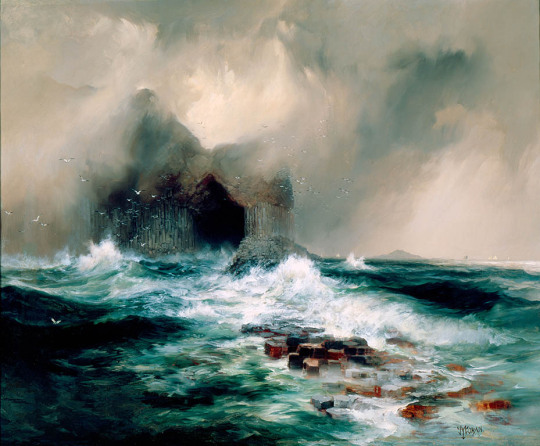
Fingal's Cave, Island of Staffa, Scotland, Thomas Moran, 1884-5
#art#art history#Thomas Moran#seascape#marine art#Fingal's Cave#Scotland#Hudson River School#American art#Anglo-American art#19th century art#oil on canvas#High Museum of Art
373 notes
·
View notes
Text

George Henry Boughton (Anglo-American, 1833 – 1905) • The Lady of the Snows • c. 1896 • Walker Gallery, National Museums of Liverpool
#art#painting#fine art#art history#george henry boughton#anglo-american artist#winter landscape#winter scene#pagan sphinx art blog#women in paintings#portrait#female portrait#artwork#oil painting#victorian art#victorian winter fashion
47 notes
·
View notes
Text
One of the great tragedies of the Rust Belt* is that it did not define itself as a distinct cultural region until well after its great era of flourishing was over. For the century from about 1850-1950, this area was not merely the industrial heart of the nation, but also its cultural center. And yet the inhabitants of the area, if they thought of themselves as having a regional identity at all, it was as inhabitants of the generic ‘north’. Its status as a center of cultural innovation was pooh-poohed by the fact that the nation’s political and intellectual elite was, even as it is today, strongly based to the coastal northeast, and this Eurocentric elite had a very different set of priorities than the cultural avant-garde of the as-yet-unRusted-Belt. This area produced little in the way of ‘high art’ in the expected form of novels, symphonies, and oil paintings. But what it did produce...
In 1900, Chicago was the occult capital of the nation, a hotbed of wild theorizing and underground publishing of all manner of Theosophical weirdness. Meanwhile, Louis Sullivan and Frank Lloyd Wright were producing the first wholly indigenous tradition of monumental architecture, setting a pattern for all of urban modernity. The Dayton, Ohio based Wright brothers - often abused in pop-historiography as some sort of rude mechanicals - were slowly and methodically systematizing the science of aerodynamics in preparation for the first ever instance of heaver-than-air flight in human history, with world-shaking consequences. And up in Detroit, Henry Ford was not merely revolutionizing transportation and manufacturing, but setting a standard for industrial relations that would create an unbelievably influential model for decades to come. It might sound strange to modern ears to cite Henry Ford as a bleeding-edge figure, but Fordism served as an inspiration to both Bolsheviks and Fascists, as well as to domestic New Dealers, while simultaneously pleasing and alarming old-fashioned Anglo liberals. The Long 20th Century is a series of footnotes to the Rust Belt Golden Age.
As can be seen from this too-brief summary of the luminaries of the epoch, it was a deeply unique Golden Age, characterized by cultural traits all its own. Technical prowess, utopian visions, and thorough systematization were its characteristics, as was a sense that a lone individual or small group could, through sheer innovative genius, change the world. While the archetype of the Mad Scientist is based on Mitteleuropean models, it was here in Mittelamerika that it achieved its apotheosis. The definitive cultural history of this region and era has yet to be written**, which just shows how underappreciated the underlying unity still is, but it in a large part contributed to the dynamic optimism that we all now take for granted as distinctively ‘American.’ But as the area felt the collapse of the long bubble economy that funded its flourishing, and its brightest sons and daughters fled west to contribute to the explosion of creativity along the Pacific slope that is now likewise collapsing, it finally awakened to a sense of unity that had previously been hidden by arbitrary State boundaries.
That, at some point, this area will again be the center of some sort of vigorous culture seems an inevitability of human geography, but will it again share the same features of optimism and technical prowess, or were those mere incidental features of a bunch of people with a Protestant work ethic suddenly getting access to the tremendous wealth provided by a vast agricultural base + fossil fuels? Man alive, I don’t have the slightest clue, but I hope that there is some sort of afterlife or metempsychosis so I can find out.
* here roughly defined as the geographical area constrained by an irregular polygon whose points are Syracuse, Pittsburgh, Cincinnati, St. Louis, Davenport, Green Bay, and Flint.
** unless it has and i’m just ignorant of it, in which case please let me know so i can rest easy that i don’t need to do any work and can just sit down and read the thing. honestly, even tangentially related book recommendations are appreciated.
95 notes
·
View notes
Text
Captain Marryat on what has gone wrong with the city of Detroit: THE FRENCH.
The French never have succeeded as colonists, and their want of success can only be ascribed to an amiable want of energy. When located at any spot, if a Frenchman has enough, he seeks no more; and, instead of working as the Englishman or the American does, he will pass his time away, and spend his little surplus in social amusements. The town of Detroit was founded as early as the city of Philadelphia, but, favourably as it is situated, it never until lately rose to any thing more than, properly speaking, a large village. There is not a paved street in it, or even a foot-path for a pedestrian. In winter, in rainy weather, you are up to your knees in mud; in summer, invisible from dust: indeed, until lately, there was not a practicable road for thirty miles round Detroit.
— Frederick Marryat, A Diary In America (1839)
He goes on to add that (anglo) American industry is now transforming the city. This 1837 print of the Detroit waterfront is from the same time period as Marryat's visit.
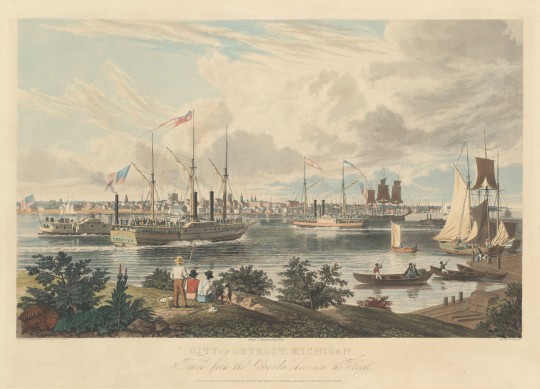
William James Bennett after Frederick K. Grain, City of Detroit, Michigan: Taken from the Canada Shore near the Ferry, published 1837 (National Gallery of Art).
#frederick marryat#captain marryat#detroit#1830s#1839#diary in america#us history#travelogue#michigan#great lakes#colonialism#1837
23 notes
·
View notes
Text
It's time to learn from Letters from Watson "What John Rance Had to Tell."
But first, Holmes explains some of his deductions. He does not explain what the long fingernails on the right hand mean.
And he comes out with what is for me, as a modern reader, a doozy:
The A [in RACHE], if you noticed, was printed somewhat after the German fashion. Now, a real German invariably prints in the Latin character, so that we may safely say that this was not written by one, but by a clumsy imitator who overdid his part. It was simply a ruse to divert inquiry into a wrong channel.
What? A German fashion of writing?
OKAY. It turns out that, prior to World War II, German was written in different scripts than other European languages, which the University of Wisconsin has documented for us because German immigrants continued to use them.
Here are a snipper of UW's examples of Kurrent and Sütterlin, as well as capital letters from Wikimedia's Fraktur.
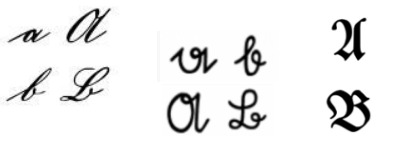
The Fraktur A looks so much like a U that I can't believe Lestrade wouldn't have read the word as "ruche" and decided the victim was a dressmaker.
Calligrascapes gives examples of Spencerian (U.S.) and Copperplate (UK) handwriting of the late Victorian period here. Lower-case A looks almost the same as in Kurrent. I feel like our wall-scrawler must have used Sütterlin.
That our killer is familiar with a German A implies he either reads German comfortably or corresponds regularly with people of German ancestry. Since Holmes says "a real German" would use Latin letters (so he corresponds with Germans or visits Germany), killer is presumably familiar with a German-American community, which is certainly plausible if he's from Ohio (or Pennsylvania, or much of the Upper Midwest).
Whew.
Holmes' passing mention of going "to Halle's concert to see Norman Neruda" is about seeing Czech violinist Wilma Norman-Neruda perform at an occasion organized by Anglo-German pianist and conductor Sir Charles Hallé (also Norman-Neruda's future second husband).
Finally, we arrive at the home of Constable Rance. Last episode, it was given as Audley Court, Kennington Toll Gate. The latter part is a real place, the site of a toll gate that was demolished about 15 years before the time of the story. Here's an old photo shared by The Underground Map.

Today the site of the toll gate is a plaza with public art.
The "long succession of dingy streets and dreary by-ways" suggests the cab ride was to somewhere near the old toll gate site (possibly just west of St. Mark's Church, which is the tower in the background), rather than directly to the triangle of land where it sat. There's not a lot of space right there, due to Kennington Park, which has a long history as a public common and site of hangings.
I suspect any police constable trying to live in London today would sympathize with Rance's living in a "sordid dwelling." Rance also takes bribes.
Rance is, of course, astonished by Holmes' powers of deduction. But what was the "drunk" man singing? I was sure in my heart that "Columbine" was "Columbia" (an old-fangled term for the United States) and searching for that made it possible to cheat when I Heard of Sherlock's discussion of this matter came up in my search results. It's "Columbia, Gem of the Ocean." Here's an audio file.
“Had he a whip in his hand?”
Where on earth did a whip come from? We've no such wounds on the victim, and the killer came with him in a cab.
I might not have gone but for you, and so have missed the finest study I ever came across: a study in scarlet, eh? Why shouldn’t we use a little art jargon. There’s the scarlet thread of murder running through the colourless skein of life, and our duty is to unravel it, and isolate it, and expose every inch of it.
And... title drop! If this is the fates weaving the tapestry of life, surely it says something about Holmes that all the other threads are colorless besides murder.
13 notes
·
View notes